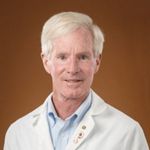Pathology
Pathology: The study of disease. Pathology has been defined as "that branch of medicine which treats of the essential nature of disease. As a field of general inquiry and research, pathology addresses four components of disease: cause, mechanisms of development (pathogenesis), structural alterations of cells (morphologic changes), and the consequences of changes (clinical manifestations). A pathological condition is one caused by disease, rather than occurring physiologically.
-
Advances in DNA sequencing, based upon massively parallel sequencing, has resulted in dramatic advances in DNA sequence output in the past few years. It is now possible to generate terrabases...
The introduction of targeted therapies into the clinical management of lung adenocarcinoma has had a massive impact on patient care. Multiple driver mutations are now druggable and treatments...
Speaker:
Paul Hofman, MD, PhD
With nearly 9 million covered lives serviced through over 150 medical centers, the VA is one of the largest, unified Healthcare System within the United States. Embedded within this system is...
Speaker:
Laurence Meyer, MD, PhD
, Ronald Przygodzki, MD
Presented at: Precision Medicine Virtual Event Series 2018
JUN 20, 2018 | 7:00 AM
DATE: June 20, 2018TIME: 07:00AM PDT, 10:00AM EDTIntroducing GE’s New Lyo-StableTM service. Sepsis is one of the top challenges facing hospitals in terms of clinical outcomes...
JUN 07, 2018 | 7:00 AM
DATE: June 7, 2018TIME: 07:00AM PDT, 4:00PM CESTIn this webinar, Prof. Greetje Vande Velde will give an overview of her work, which involves lung and brain infections. Dr Vande Ve...
I will discuss three novel technologies that our laboratory has developed in recent years. In the first part of the talk, I will describe our work on engineering variants of the RNA-guided en...
Growing living human cells in vitro for basic research, drug discovery and reparative/regenerative medicine is challenged by the difficulty in developing methods for reproducibly and cost eff...
Studying the molecular machinery of cells from atomic detail to the cellular context and beyond is a great challenge for cell biology. It is hugely important to zoom into the atom-by-atom arr...
G protein-coupled receptors (GPCRs) regulate virtually all known physiological processes and are a premier class of drug targets. However, a detailed mechanistic understanding of their...
Gibco™ ExpiCHO 和Expi293系统是两款全新优化的瞬时重组蛋白高表达系统,目前已广泛应用于治疗性候选药物的早期鉴定,诊断性试剂的快速生产,以及疫苗研发、结构生物学和膜蛋白生物学等研究领域,成为可以在瞬转中获得极高的蛋白产量的一站式有效途径和工具。虽然多种重组蛋白均可在这两款瞬时表达系统中获得高水平表达,但HEK293 细胞和 CHO 细胞之间存在的内在...
























